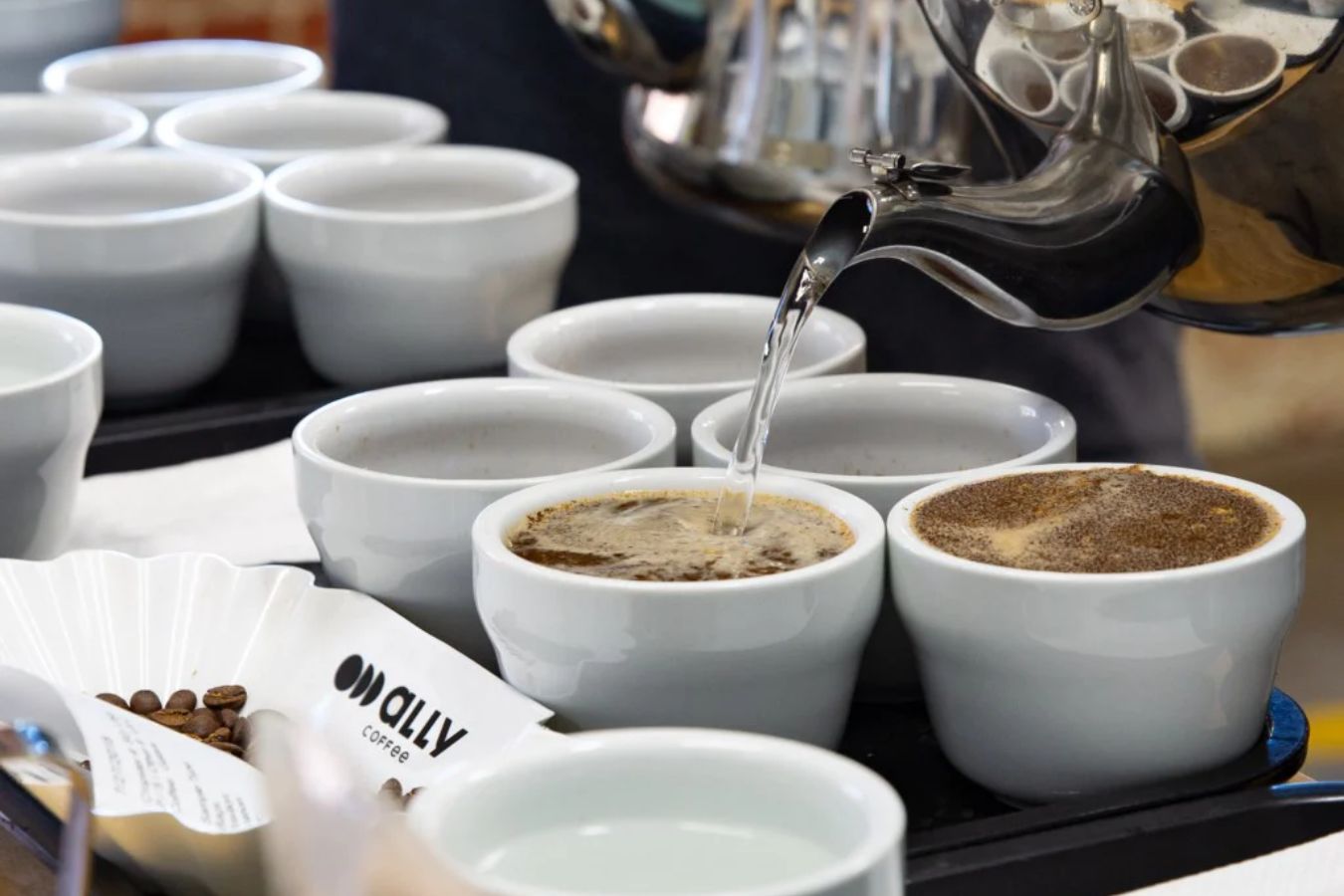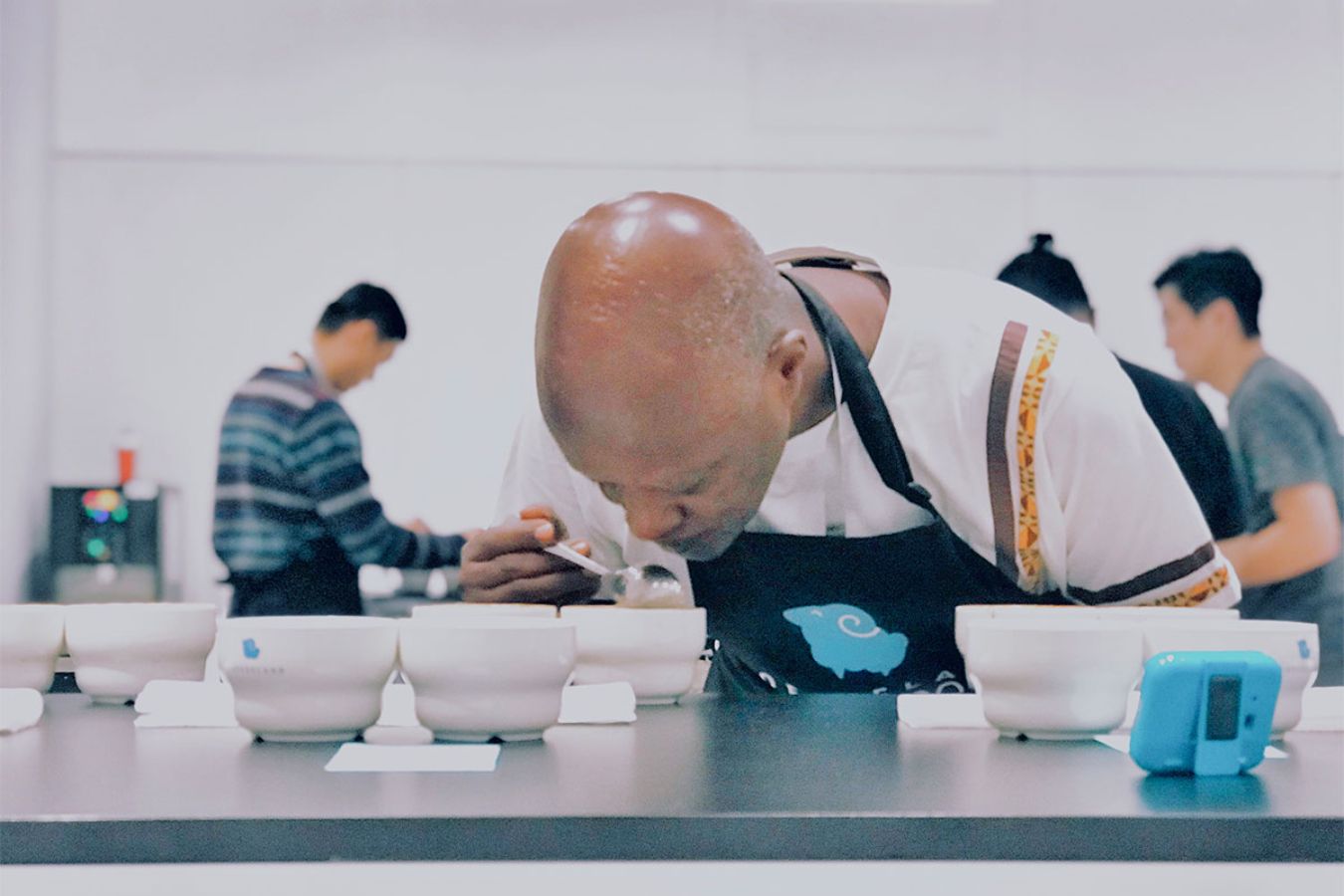
Since the coffee market has grown in recent decades, so has the growth and need for improved quality. The need to discover coffee sources with consistent quality and productivity has established a particularly crucial link in the coffee supply and demand chain: evaluation and procurement.
A Coffee Buyer’s and Reviewer’s Role
The major duty of Evaluation and Procurement is to source high-quality coffee, as the name implies. Accompanied by a steady production that is in keeping with the company’s product line. When the third wave’s demand exploded, the supply was equally diverse. Procurement, an intermediary bridge, was developed with the direct job of filtering and pricing. Contributing to the direction of the coffee market’s development structure.
The attractive compensation (average of $ 2000 to $ 4000 per year, according to ZipRecruiter) is the most appealing aspect of this vocation. Procurement is an interesting field with an equally exciting character. It has become a dream destination for many professionals in the coffee industry. They get to work with manufacturers and customers on a one-on-one basis. That person is capable of having a significant impact on coffee consumption trends and volatility.

Of course, this work entails a great deal of responsibility and stress. Work has an impact on the company’s costs and finances. Face risks on a regular basis and make decisions about inventories, import and export, and so on. Directly affect the company’s collaboration and future partners.
Coffee buyers and reviewers serve as a link between producers and corporations.
The most important task of a coffee buy and evaluation is to ensure the quality of business input items. In the later phases of the supply chain, they decide on the quality of items given to partners and customers. As a result, they must travel frequently to meet with farmers and producers in order to inspect product quality before agreeing to collaborate.
Although it appears to be wonderful, it is actually extremely demanding work. There are numerous prerequisites for physical strength, education, and, most importantly, tasting abilities. In truth, determining product quality and cost is a difficult task.
This work is appealing, but it is not for everyone. Only individuals who have worked in the coffee industry are eligible for this post. Alternatively, individuals who have had a run-in with the coffee industry and desire to advance in it.
What does it take to work as a coffee buyer and reviewer?
Sensory abilities
To work as a professional buyer, you must be able to evaluate the quality of coffee. As a result, the ability to appraise is a requirement.
You should realize that the quality of the coffee beans determines 50 to 60% of the final product. Whether you run a commercial or specialty firm. What would you do if you were presented with a variety of coffees but only had restricted options? You can only employ the most effective assistance tool: SENSITIVE SKILLS, as the response.
Sensory skills aid in the classification of quality and the identification of products that meet the specified standards. One of the key elements for success in the coffee industry is taste. This places a significant responsibility on the shoulders of the Coffee Valuation and Procurement person. With their “diamond nose and golden tongue,” they must choose the source of items.

Assessors and buyers of coffee must have sensory skills.
Furthermore, regardless of geography or geographical area, sensory abilities are the unifying norm for coffee assessors and buyers to communicate with partners and customers. Personal experience and worldwide scientific standards are the foundations of sensory talents. This is to ensure that any product information provided is correct.
However, if we are unable to communicate about coffee quality – flavor judgment, contradictions might readily occur. If the Coffee Reviewers and Buyers do not have adequate experience and understanding of worldwide standards, this incidence may be subjective.
Overview by experts
Understanding and grasping the product is essential for every work. Specifically for the evaluation and procurement of coffee. Buyers must choose the best source of commodities and negotiate with farmers and producers to obtain affordable rates. They must also talk with potential partners and negotiate with business owners. To comprehend the challenges, requirements, and market trends…
An overview of the coffee industry in many categories might be extremely beneficial. Incorporating excellent communication, resulting in long-term and sustainable collaboration… International Coffee Associations, Organizations (SCA, GCS, etc.) and partners such as Barista School usually organize courses on a regular basis.
The Green Coffee (Green Coffee), Roasting (Roasting), and Sense (Sensory) training program… to improve background understanding of the coffee industry for everyone who has worked in or wants to work in the coffee industry trade in coffee
Along with sensory talents, broad background knowledge enhances Thu Mua’s work and reduces trading risks.
Work experience in the coffee industry
A Coffee Assessor and Purchaser will require more than simply sensory abilities and knowledge as an intermediary point in the supply and demand chain. That is the collision and operating experience in the sector of coffee. This experience comprises a variety of tasks, including principal producer, barista, and so on. This offers you a general idea of how the coffee industry operates. Alternatively, the region’s customer behavior.
Understanding your market is the foundation for establishing proper criteria for sourcing items. Products are chosen not only for flavor and price, but also for ease of travel, storage, preservation, and development of product individuality. In addition, it is to establish future collaboration ties.
“Sell with wards, commercial with you”
Effective and long-term collaborations are essential for any company’s growth to be successful.
Knowledge of a foreign language
The globe of the twenty-first century is a flat, globally-connected planet with a plethora of professional choices. Especially given the nature of a Coffee Purchasing and Evaluation Specialist’s employment. As a Purchasing Manager, you will be required to travel often too raw material manufacturing sites both locally and internationally.
You must negotiate directly with the manufacturer. It might also involve collaborating with partners and customers all across the world. As a result, knowing a foreign language provides a significant advantage in gaining access to numerous collaboration options. It will aid in the successful delivery of company information.
Vision and understanding of the market
Coffee Evaluation and Procurement is a commercial endeavor. As a result, in addition to the required talents such as senses, foreign languages, and professional knowledge, A working knowledge of the commercial operating procedure is also advantageous.
A professional purchaser must be able to manage inventory, cost of goods, transportation, handle transaction data, and negotiate with colleagues, among other things. A business course or a specialization in Economics is a suitable foundation for this activity. Furthermore, Buyers who are seeking prospective sources of goods to bring in business profits benefit from the capacity to assess and appraise the market and predict consumer trends.
Prepare your mind to “roll out”
Coffee assessors and acquisitions spend most of their time visiting plantations and other locations. They must also remain there for a specified period of time. They require time to implement the collaboration plan or finish the transaction formalities.
It might be a little different from your “dream,” though. It might be a “carpet and rose” experience switching to raw materials. Low- and middle-income countries account for the majority of coffee-producing countries. Living conditions and infrastructure have not yet developed in such areas. As a result, it’s extremely possible that getting to the coffee farmers in the highlands and deep places will be tough.

It will, nevertheless, be a beautiful and unforgettable event. There are numerous possibilities to observe coffee-producing conditions firsthand. Additionally, you can interact with local coffee roasters. People who have dedicated a lot of their hearts to coffee for generations, passing it down from generation to generation.
Coffee skills diploma
Courses in the SCA Coffee Skills Program provide you with the hands-on experience and knowledge you need to pursue a successful career in the specialty coffee industry.
The Coffee Skills Program (CSP) allows you to tailor your education to your specific interests and needs. The program is divided into six modules: Introduction to Coffee (at one level), and five specialist modules: Barista Skills, Brewing, Green Coffee, Roasting, and Sensory Skills.
Specialty coffee association
The Sensory Summit at UC Davis is in just two weeks—register now to attend the only event dedicated to coffee sensory science. This year’s program features cutting-edge research and paired sensory experiences led by industry leaders in specialty coffee and academic researchers. Dr. Mackenzie Batali and Sara Yeager will present: – Brewing Temperature: What Are the Differences Between Hot and Cold Brewing?
– Dr. Nancy Cordoba’s Decoding the Mystery of Coffee Sweetness: Using Descriptive Techniques
– Dr. Devin Peterson’s Unlocking the Molecular Complexity of Coffee Flavor Quality
– Dr. Mackenzie Batali and Sara Yeager’s Understanding Acids’ Role in Coffee Flavor